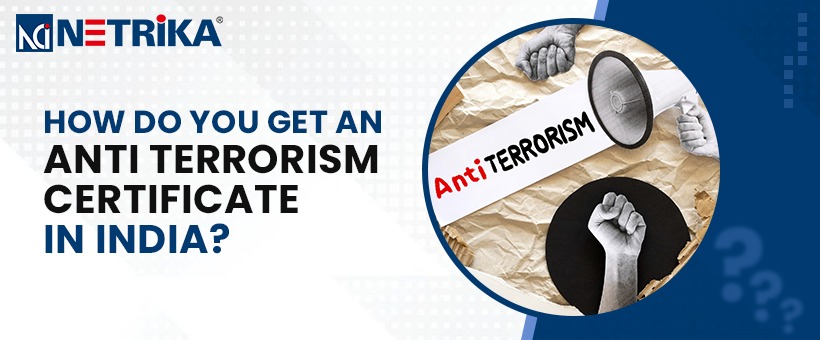
How Do You Get An Anti Terrorism Certificate In India?
How Do You Get An Anti Terrorism Certificate In India?
In the globally connected world, where terrorist threats are eminent, security concerns are inevitable, the need for stringent measures that help combat terrorist acts becomes paramount. Anti-terrorism training courses that provide certifications are vital for specialists in maintaining national and international security. Obtaining an anti terrorism certification equips professionals with the skills and knowledge of anti terrorism strategies, crisis management and risk assessment. The anti terrorism training courses help specialists with insights on security protocols, and policies to contribute towards the security of different social environments.
Moreover, specialists with anti terrorism certification help organisations be better prepared to respond to security threats, improve their incident response and adopt standardised protocols to promote a more cohesive defence against terrorist activities.
How can you obtain an anti terrorism certification in India
Many organisations in India offer anti-terrorism training courses in India at an unclassified level. Among the most revered includes Netrika’s Certificate in Anti & Counter Terrorism Studies (CACTS). This course provides insights into the terrorist activities ideology, funding, logistics, network and cell connectivity. It also lays the groundwork for understanding threat detection and identifying the pattern trends for professionals to become more proactive towards terrorist acts.
CATS participants receive unclassified training in themes relevant to fraternities from both the commercial and law enforcement sectors. It provides a broad framework for defining similarities and distinctions between international terrorism and its strategic direction, way of running organisations in diverse areas, and application of tactics and procedures based on its abilities and goals. In summary, this in-depth course provides a synergistic confluence of constant elements in the subject of terrorism.
While the criterion for acquiring a certificate in counter-terrorism may vary for different institutions, the basic eligibility remains similar.
A professional will be required to submit relevant documents, including identification proof, educational qualifications, professional background, moral character certificate from employers. Moreover, considering the sensitivity of the anti-terrorism training courses, a professional is expected to be of high moral and ethical character with no criminal cases to their name.
When the professional meets the eligibility criterion laid down by CACTS, enrols for the course, completes it with proper knowledge and passes the exam, they become eligible for the anti terrorism certifictaion. The counter-terrorism issuing authorities usually perform a thorough background check to confirm your announced information is correct.
Upon successful evaluation of the information provided, the professional is awarded with the anti terrorism certification with the scope of certified activities.
Enrolling in the anti-terrorism courses and successfully obtaining the certification enhances a professional’s credibility, demonstrates their commitment to national security and scales their career trajectory. In fact, in certain job profiles with a heightened security concern, having an anti terrorism certification is a necessity for specialists.
Netrika offers Anti Terrorism Certification Course to Aspirants
CACTS and Netrika collaborated to develop the trained Anti-Terrorism Specialist (CACTS) course given by Netrika in order to establish a fleet of trained anti-terrorism specialists who are more vigilant and prepared. The comprehensive curriculum of the anti-terrorism certification in India acquaints students with the risks and challenges confronting international security, which is based on genuine case studies and counterforces. Netrika’s thorough and value-added CACTS training improves understanding of terrorist threat identification and pattern trends.

